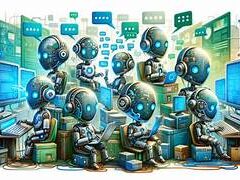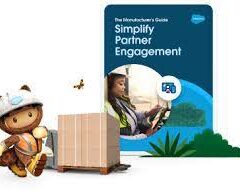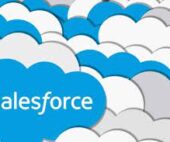How Salesforce’s Agentforce Is Reshaping Development—Saving 30,000 Hours a Month
“AI agents are transforming my role—shifting me from pure technical execution to strategic leadership,” says one Salesforce developer. Instead of spending hours on repetitive tasks like code reviews or debugging, she now focuses on designing scalable architectures, optimizing workflows, and driving innovation.
This shift reflects a broader evolution in software development: Developers are becoming AI supervisors, guiding autonomous agents, refining outputs, and ensuring alignment with business goals. Success in this new paradigm requires systems thinking, context management, and strategic oversight—not just coding expertise.
Agentforce: The AI-Powered Developer Revolution
Salesforce is already leading this transition with Agentforce, its digital labor platform, which has saved 30,000 developer hours per month—equivalent to 15 full-time engineers—by automating routine tasks.
Key tools powering this transformation include:
- Agentforce for Developers – Automates coding tasks like generating new features, explaining legacy code, and writing test cases.
- Agent Builder – Lets both developers and business users create, customize, and deploy AI agents with low-code tools.
- Agentforce Testing Center – Provides a sandbox to simulate agent behavior, test performance, and refine decision-making.
- Agentforce Developer Edition – Enables advanced users to build deeply customized agents by blending AI-generated code with their own expertise.
Unlike traditional AI coding assistants (which suggest snippets or autocomplete boilerplate), Agentforce agents act autonomously. For example, a developer can simply prompt:
“Create a component that calls this API, processes these parameters, and returns success/failure status.”
The AI then:
- Identifies required libraries
- Writes the code
- Tests the component
- Delivers a working solution
The developer’s role? Review, refine, and ensure alignment with broader system goals.
CodeGenie: Salesforce’s Internal AI Powerhouse
Behind Agentforce lies CodeGenie, Salesforce’s internal AI assistant, built on its proprietary CodeGen model. The results speak for themselves:
✅ 7M+ lines of code accepted
✅ 500K+ developer questions answered
✅ 30K+ hours saved monthly
✅ Seamless integration (IDEs, GitHub, Slack, CLI)
“CodeGenie handles repetitive work, freeing me to solve complex problems,” says NaveenKumar Namachivayam, Senior Software Engineer at Salesforce. “It’s like having an expert collaborator—making coding faster, smarter, and more efficient.”
Lessons from Salesforce’s AI Journey
- AI as a True Collaborator – Agents boost productivity by assisting with complex coding and real-time problem-solving.
- Seamless Workflow Integration – AI must fit naturally into existing tools (IDEs, GitHub, Slack) to drive adoption.
- Eliminating Busywork Fuels Innovation – Automating repetitive tasks lets developers focus on high-impact solutions.
These insights don’t just benefit Salesforce—they directly shape Agentforce’s external offerings. CodeGenie’s success, for example, informed Agentforce for Developers, ensuring enterprise users get battle-tested AI assistance.
The Bottom Line: AI Won’t Replace Developers—It Will Elevate Them
Just as cloud computing didn’t kill IT jobs, AI won’t make developers obsolete—it will redefine their roles. The future belongs to those who:
🔹 Embrace AI as a force multiplier
🔹 Shift from writing code to orchestrating AI agents
🔹 Focus on architecture, strategy, and innovation
For organizations, this demands investment in training, culture, and tools that empower teams to lead in the agentic era.
The message is clear: Developers who adapt will thrive—not as coders, but as AI-powered strategists. Salesforce’s Agentforce is proving it’s possible today.
🔔🔔 Follow us on LinkedIn 🔔🔔











